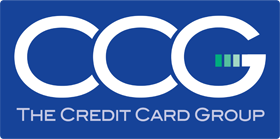I wrote recently about the proposed settlement to the anti-trust class-action lawsuit against Visa and MasterCard that has received the courts’ tentative approval (“Credit card surcharges: the good, the bad and the ugly…”). The proposed settlement has received a lot of media attention due to the size – over $6 billion – and the fact it allows merchants to surcharge consumers right away for using a particular credit card.
As a merchant, you may have received a legal notice of the proposed settlement and your rights under it. While I am not a lawyer (and don’t play one on TV), there are some decisions that you, as a member of the lawsuit, must make with regard to the proposed settlement. My thoughts below are presented from the business side of the house, not the legal. Any legal questions you have should be directed to the Class Action Administrator or your own attorney.
The proposed settlement is divided into two classes. One is a Cash Settlement and the other is a Rule Changes Settlement. The Cash Settlement Class is just what it sounds like – getting a piece of that $6 billion. To receive a portion of the $6 billion, you will have to file a valid claim. Only merchants that file a claim will receive a portion of the settlement. Merchants may also choose to exclude themselves from the cash settlement or object to the settlement.
As you may have learned from news reports, one of the benefits from this lawsuit is that you, as a merchant, might now have the ability to surcharge a consumer if he or she presents a “credit card” for payment. This new freedom to manage your transaction costs has a number of narrowly defined requirements that you should review to determine if surcharging is allowed in your circumstances.
1. This ability only applies to credit cards and not to signature or PIN debit cards.
2. If you have merchant locations in more than one state and any one of those states prohibits surcharging (California, Colorado, Connecticut, Florida, Kansas, Maine, Massachusetts, New York, Oklahoma and Texas) you cannot surcharge in any of your stores, regardless of the state law in the other states.
3. If you accept American Express, you cannot surcharge any of the card brands.
4. If you have navigated the first three steps above and elect to surcharge, you have to register with the card brands at least 30 days before you start surcharging.
5. Having done all of this, the last step is to display a notification to the consumer, both at your cash register and on the POS receipt that the consumer has to sign. On the receipt, your percentage surcharge has to automatically calculate and print as a separate line item for the consumer to see.
There is information in the legal notification about how to opt out or opt in to the settlement and a description of how that choice impacts you in the future. You should review this process and determine whether you will opt out, opt in, or do nothing with this notice. You may want to pay particular attention to the section of the settlement regarding future disputes or lawsuits against the card brands if you opt to participate with the settlement class.
More information about this can be found at www.paymentcardsettlement.com or by calling 800.625.6440.
John Mayleben CPP is Retailers Processing Network senior vice president, technology and product development, and a national expert on electronic payment processing. He was the first person in Michigan and among the first in the nation to receive the Certified Payments Professional designation from the Electronic Transactions Association.
